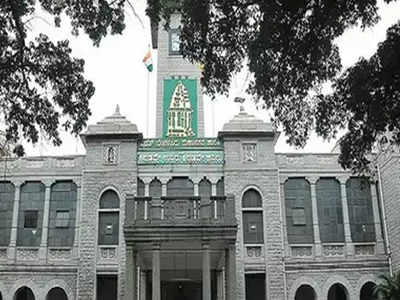The Indian Express 20.01.2014
In a first, PMC wants ‘women-friendly’ tag for city

Special safety policy, women-friendly building certification, regular
health check-up camps at offices, industries and business parks and
exclusive buses are some of the major initiatives that women in the city
can hope to enjoy in the near future.
The PMC has been planning these measures as a part of its framework for
making the city woman-friendly. A road map to this effect is being
charted out by the civic body with the help of All India Institute of
Local Self Government (AIILSG), Mumbai.
While the initiative is considered as first of its kind in the country,
the civic body has termed it as the next concrete step towards the
implementation of gender-based budgeting. “We have started implementing
the gender-based budgeting, but the concept remains notional so far. We
want to turn this concept into a reality by coming out with a framework
for making the city woman-friendly.
The detailed guidelines prepared by
AIILSG are basically a set of suggestions aimed at carrying out
interventions of various departments of the civic body as well as
government bodies concerned,” Hanumant Nazirkar, in-charge of Urban
Community Development (UCD) department of PMC, said.
AIILSG director Sneha Palnitkar said PMC annual budgets for the past few
years were studied to ensure how the concept of gender-based budgeting
could be fine tuned. “We have come out with suggestions, which can be
implemented through interventions among different PMC departments,
government departments and other key bodies to make life more convenient
for local women.
Specific budgetary provisions for each PMC department
can be worked out accordingly to give more realistic scope for
implementation of gender-based budget,” she said.
While the AIILSG has come out with English draft of the said framework,
its modified Marathi version will be submitted before the civic body
shortly. “We have been implementing certain measures recommended by
AIILSG through different schemes of UCD and other departments. More
concerted efforts would be taken in the future in keeping with these
proposed measures with requisite budgetary allocations as per the
principle of gender-budgeting,” said Nazirkar.
Rajya Sabha member and leader of Nationalist Congress Party,Vandana
Chavan — who has pioneered the concept of a woman-friendly city — said
guidelines being prepared by AIILSG would offer a road map for the PMC
to execute gender-budgeting. “The concept, so far, has been confined to a
very few activities towards women development and empowerment.
The
proposed framework would identify the needs and issues of women from
different strata of society, and would address them with the help of
different civic and government departments by having definite money
allocation,” she said.
Meanwhile, the framework for a women-friendly city has also addressed
issues of vulnerable groups like senior citizens, unorganised women
labour and commercial sex workers.
On the wish list
Women-friendly building certification
- The parking area should be under closed-circuit television (CCTV) surveillance and monitored 24X7
- The doors of the elevatorsshould have a transparent part for improved visibility
- Emergency phone service provisions in buildings, shopping centres and commercial complexes
- Other necessary facilities like rest rooms, space for social
gathering, special space for children and senior citizens should be
provided in buildings
- A separate parking area for women in commercial complexes, institutions, market areas and educational institutions
Sanitation
- Clean and accessible toilets for women in industrial areas, business parks and shopping complexes
- Public washrooms for women at fixed distances at crowded locations, PMPML bus stops, shopping centres and market areas
- Signboards at every 2-3 km indicating location of public toilets
Accommodation
- Women hostels and budget hotels within and outskirts of the city for working women
- More girls-only hostels with reading and study hall facilities
- Linkage of colleges and housing co-operative societies for giving rental accommodation for girl students
where the hostel facilities are not adequate and where housing
societies take objection to accommodating students
Health
- Regular health check-up camps at offices, industries and business parks
- Increasing awareness on maternal and child care
- Awareness programmes to make citizens sensitive about female foeticide and PCPNDT Act
- Strengthening the public healthcare institutions to ensure they are women-friendly
Education
- Increasing awareness about distance education among women dropouts
- Appointing guidance counsellor for career and personal guidance
- Book bank/earn-and-learn schemes for needy girl students
Transportation
- Women’s special bus, especially during peak hours (8-11 am) and afternoon (2-5 pm)
- Well-lit roads with proper signage, maps, display of names and directions to be provided in all areas
- Review of secluded areas that are frequently used by women
- Subways and stops for public transport to be provided with proper
lighting and CCTV surveillance, especially during non-peak hours
- Local police stations must have complete records of transport operators employed for BPO industry
Safety
- Counselling for women to encourage them to complain about abuse
- Regular police patrolling during late evening and early morning where chain-snatchings take place
- Local safety assessment to find out the profile of criminals

